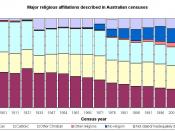Sociology/Cultural Diversity
Diversity in Organizations
With the onset of that complex trend called "globalization," many organizations have increasingly found themselves dealing with a culturally diverse work force. In recent decades much scholarly effort by organizational scholars has been devoted to examining the negative and positive consequences of such diversity, whether conceptualized in "demographic" terms (for instance, age, length of service, or gender) or "cultural" terms (e.g., ethnicity, racial make-up, or language). According to one prominent view, demographic diversity within organizations leads to increased communication and coordination problems, and thus to potentially decreased organizational performance.[ The causal reasoning at the base of this perspective often centers on how diversity entails differences in the value priorities, goal preferences, and interpretive schema held by organizational members. It is these differences that are seen as most likely to increase misunderstandings, friction, and even conflicts in organizations.
Added cultural factors such as language or norms of behavior have often been found to intensify such difficulties.
Along these lines, many studies of work groups have revealed negative correlations between demographic diversity and various indicators of organizational performance. From a related perspective, studies of organizational cultures have emphasized the importance of shared mental models for achieving coordination and control and show that coordination and control are even more difficult to achieve in culturally diverse organizations where individual differences of participants are enhanced by differences in their national cultures. For example, it has been suggested that trust formation processes differ among cultures that hold different values, thus making the creation of mutual trust in multicultural settings more difficult to achieve.
Grounded in social identity theory, another view is that social diversity provides a context in which organizational members are more likely to make in-group/out-group categorizations on the basis of demographic similarity. Such distinctions are associated with...


